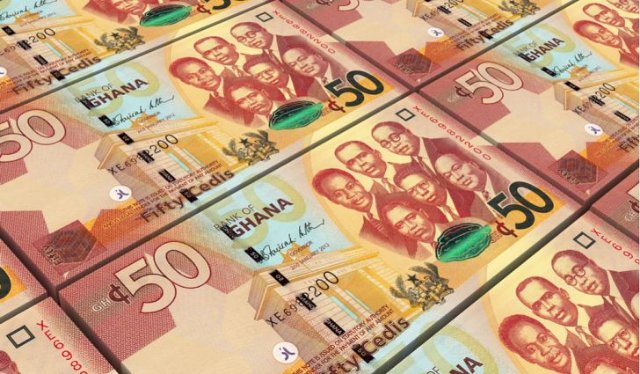Ghana Cedi suffers depreciation against the US Dollar by 0.93 percent over the last four weeks
“We moved our reference rate up and that has sent some false signal to the banks that rates will have to go up,” Mr. Philip Abradu-Otoo, Head of Research at BoG,

The Ghana Cedi has depreciated against the US Dollar by 0.93 percent to the ‘greenback’ over the last four weeks, according to Bank of Ghana data on the movement of the currency.
The Cedi has lost almost 13 percent of its value to the US Dollar by December compared to the same period in 2018 when but shed about 8.2 per cent to the US currency. It ended that day trading at US$51 to GH ¢5.54 according to BoG data.
From 2016 to 2018, the cedi has depreciated by 9.6 percent and 8.4 percent respectively.
The Head of Research at BoG, Mr. Philip Abradu-Otoo, told the Graphic Business on December 16 that the current depreciation was largely due to a recent adjustment in the central bank’s reference rate on foreign exchange and the pressure that the government’s revenue mobilization and expenditure choices were exerting on the economy.
“We moved our reference rate up and that has sent some false signal to the banks that rates will have to go up,” he said in an interview.
“Also, from the monetary side, we do not see any liquidity injection from the side of the central bank to which someone will say that there is liquidity to the economy and that money is chasing these dollars and so you need to look at the side of the fiscals.
READ ALSO:
Ashanti Region tops chart of fire outbreaks with 878 incidents
“What you need to ask yourself at this stage is whether fiscal implementation is injection some noise into the system,” he said, explaining that the imbalance in revenues and expenditures was a source of uncertainty to the economy.
Mr Abradu-Otoo of the Research Department of BoG said beyond the cedi suffering negative sentiments from the fiscal position of the economy and increased demand for foreign exchange to repatriate, the recent rise in government payments in foreign currencies was also to blame.
“Our understanding is that some payments are being made in relation to energy sector activities and some of these people have liabilities in forex and it is part of the problem,” he said.
Going forward, he said BoG would continue to support the currency but in a way that would protect the national reserves against “unnecessary burning.”





































